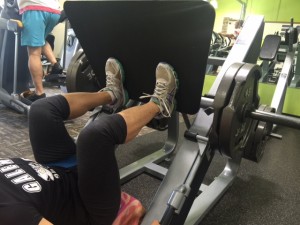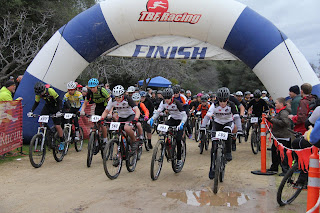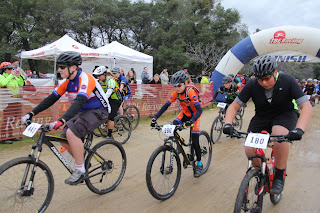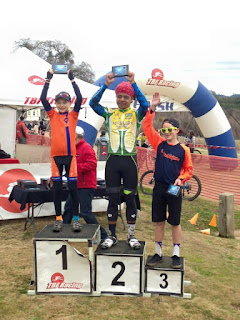Silver-Sage/O2fitness athlete, JT Teerlink shares sincere reflections on the opportunities afforded when we continue to be willing and open to observe and learn. This perspective helps us to continue to improve and avoid the pitfalls of preconceived notions, leading to stagnation. Thanks JT for sharing.
I love teaching the scientific method. I teach my students that scientists are always collecting new observations that have the potential to disprove not only their own work but also that of their colleagues. A theory that can withstand decades worth of interdisciplinary observations is one you can truly rely on to interpret the world around you. But even those, on occasion, must be altered to accommodate for new data.
I always take a moment to stand on my soapbox and urge students to do something not covered in the syllabus. An underlying agenda I have in my moonlight career as a community college professor is to mold my students into better citizens, or at least my idea of what that looks like. ‘Scientists are always open to new observations and new data, particularly if it does not support their view. This is a good policy in life. Always be open to new data to shape your perception of your friends and family, drive your consumer choices, and inform your political leanings, particularly when the new data challenges your current view.’
I’ll leave consumer choices and politics aside, but how often are we truly open to seeing our friends and family in a new light? Allowing them to change and grow without holding them to some prior expectation. Even worse, how often do limit our own growth by a preconceived notion of what we should be? What our strengths, weaknesses, abilities, passions, and dislikes are. What limitations do we set by neglecting to collect new data?
As 2015 wound to a close I wanted to take a look at my own preconceived notions about who I thought I was and who I thought I was not. Attempt to let go of expectations. Was I too attached to any particular view or habit? This was a broader exercise, but who I am as an athlete was an easy target.
I’ve collected data over the years about my relationship to athletics. In recent years my time has predominantly been spent cycling. Skiing, running, whitewater kayaking, yoga, triathlons, all take rotation, and of course my first true love; swimming. The data all support a singular conclusion: my brain is clearer after my body has been pushed to the point where I am able to silence the constant, bustling, unending mental chatter.

Junior year high school
As a high school and collegiate swimmer I was convinced it was all about getting faster. I poured myself into every workout, focused on technique, obsessed over the numbers all with the intent to be as fast as I could possibly be. With retirement looming, midway through my senior year I realized that 1/10th of a second really didn’t matter in the grand scheme. It was a bit of an identity crisis. I had so much of my character wrapped up in those fractions of seconds. My life would go on whether I shaved those fractions or not, and I would be forced to look towards new horizons.

Visibly crying on the podium over not achieving time standards for senior nationals despite winning state championships in the 100 yard backstroke (and also 100 fly).
It was challenging to find a new equilibrium with athletics. It took close to a decade for me to realize that what I had truly loved about swimming wasn’t the competition against the clock or opponent. It was the daily effort, the practice of exertion. I like trying hard. I naturally crave heading out and hammering up hills. It is something that calls me. The value is in the day to day and any outcome is ancillary.
I ‘retired’ from swimming 15 years ago, and since that time I have completely avoided ‘training’. Too often I hear people talk about training as a chore, a dirty deed that must be done in order to enjoy some future event that it is ‘all about’. This doesn’t resonate with me, and so I have avoided calling it training or having any sort of organization. The data I had gathered suggested ‘training’ wasn’t for me. I just like riding my bike, skiing in the mountains, swimming in lakes.

Co-founder of the Dirt Birds women’s cyclocross team. (photo credit Jim Elder)
Two years ago I found cyclocross. I love it. I love the intensity. I love the opportunity on each lap to improve on a line or a skill. I love the community. I love competitors breathing down my back pushing me harder, and those dangling just out of reach in front me. I love executing a pass and not being certain if I’ll be able to maintain it. And most of all, I absolutely love that for an entire 45 minutes I do not think about anything else.
I have grown so attached to the idea that I am not a person that trains and that I am not a person that is an ‘athlete’. But if I am a careful observer, I know how much I love it when fitness and skills mesh and I am able to dig a little deeper, stick a line, execute a pass, put the hammer down. I want to chase that feeling of when things ‘click’ but this is a vague goal of improvement. I know that whether I surpass my competitors or they improve over me none of that makes a difference in my identity or character. Because of that I have been adamant about not ‘training’.
It is time to collect new data; I make the conscious decision to let go of who I think I am. My initial conversations with Julie made it clear she would be a great advocate in providing organization in the day to day, while keeping the focus on enjoying the process even more than that outcome. Embrace challenges to my body and mind day in and day out and accept that it is possible to enjoy even when it is organized into ‘training’. Embrace that with some forethought I could have more of those moments where it all clicks and the constant chatter in my brain falls away.
From an initial email to determine if we would be a good fit as an athlete-coach pair I immediately felt at ease. ‘Truly in my mind it’s not at all about competition or proving, its simply an amazing venue to express our talents. Artists have art, we have athletics. We absolutely want to find the balance so this athletic outlet provides a positive balance to your life. And I think when we love it, training and workouts are not work, but again just an opportunity to keeping improving, honing and polishing our art.’






















